How Long Does It Take For Blog Posts To Rank On Google?
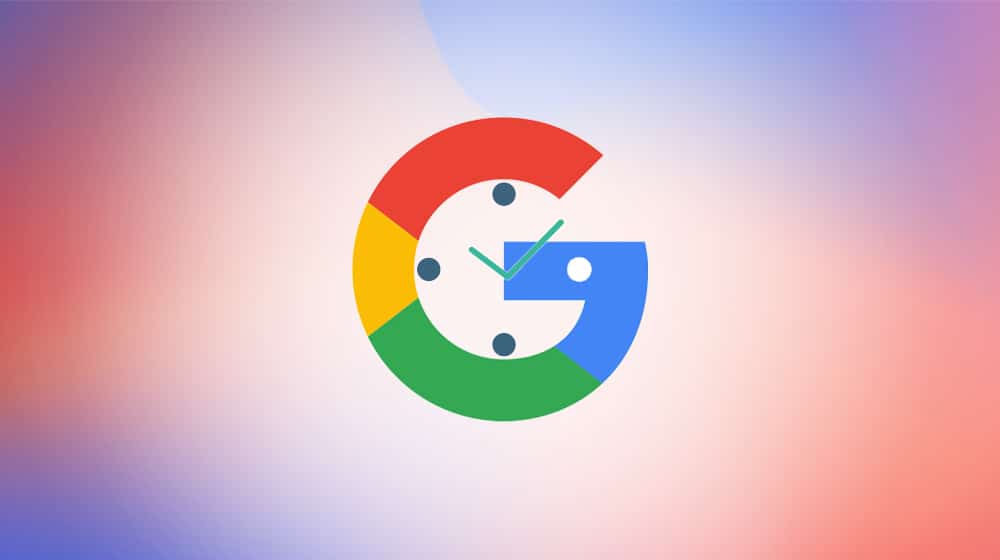
If you're just starting a blog, or if you've decided to kick your blogging into high gear this year like many other marketers, you might be wondering how it all works. I don't blame you; there's a lot to learn. Everyone has to start somewhere, so go ahead and ask the questions you think are dumb. Sometimes there are lessons to be learned in them.
Today's question is pretty reasonable. How long does it take for a blog post to rank on Google's search results page? It's an easy question to ask, but a difficult one to answer.
Time to Indexing
The first thing that impacts how long it takes a blog post to rank is how long it takes for your content to be indexed in the first place.
Indexing means "Google has found, categorized, and sorted your content into their algorithm."
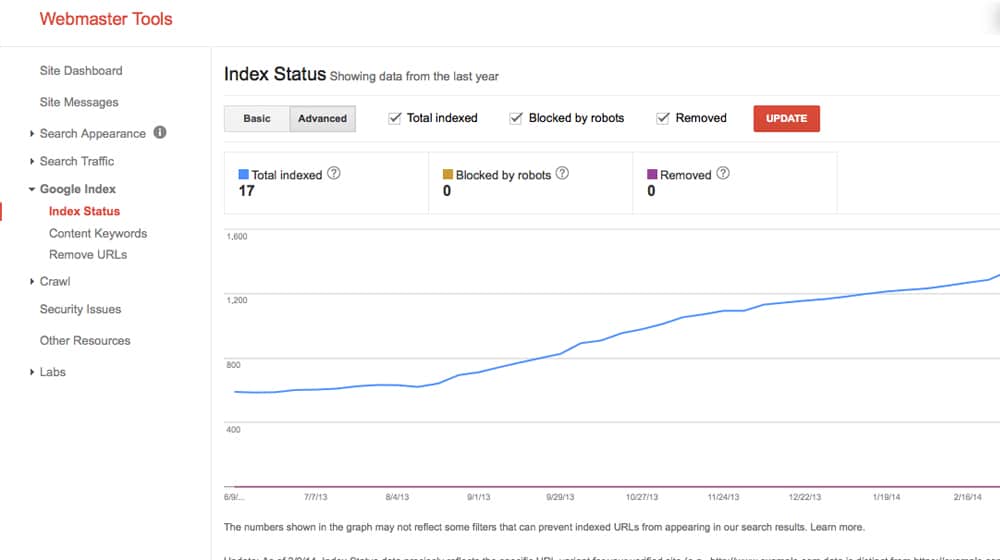
If you create a brand new website, and you sit there running a blog, you can run that site for months or even years without being indexed. It all comes down to putting yourself out there in a way that Google can find you.
So how does Google find new sites?
- A site they know about links to your new site.
- You upload a sitemap to Google's system.
- You link your domain in the Google search console.
- Your link to your site from social media profiles.
Google needs to find your site, but once they do, they will index it. After it is indexed, you'll have a period where your site is "sandboxed", isolated from the live index. This helps Google monitor your site for a few days or a few weeks, making sure you aren't going to suddenly disappear, start serving malware, dramatically change your site content, or start stealing content from other sites.
After all, Google doesn't want to start recommending your page to someone else, only to have the relevance of that page disappear or to have it start serving malicious code to viewers.
On average, Google takes between 4 days and 4 weeks to index a new site. So, at the very least, it will take between one week and one month before your site can even begin to start ranking.
What You Consider Ranking
The next factor you have to contend with is definitions. What is "ranking" after all? What rank do you have to reach to be happy?
For a lot of newcomers to marketing, the answer is "well, we want to be the top result on Google." They want to be number one. That's an admirable goal, of course, but for most new sites, it's going to be unattainable.
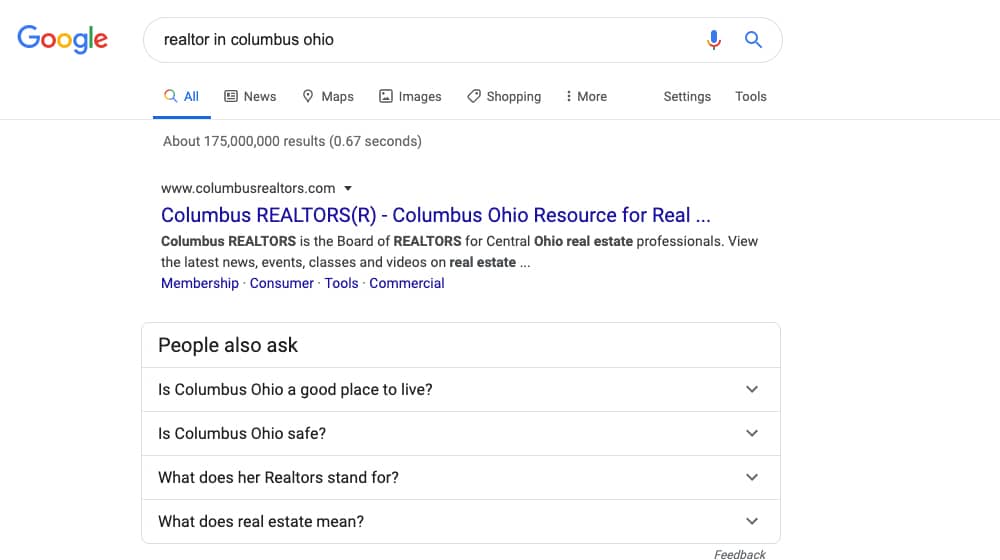
Remember: to rank, you have to be better than all of the other content for a given query. For some queries, that might be easy. For others, it might be impossible. You're never going to rank your small shoe store higher than Nike's website for the search term "Nike".
How long it takes to reach your ranking goal depends on what your ranking goal is. Do you want to be in the top 100 search results? Do you want to be somewhere on the first page of search results? Do you want to be in the top five, or the top three?
The higher your goal, the harder it will be to reach and the longer it will take to get there. You have to establish yourself and prove that your content and your site's value is enough to unseat the existing winners in that space.
Query Competition
Another factor you need to consider is the existing competition for a given query. You might notice that pretty much every big-name backlink and keyword analysis tool has a "keyword difficulty" estimate.
Something like "Nike" is going to be an extremely difficult keyword to rank for. Nike themselves has a stranglehold on the search results for their own brand name, as you might expect. You get their domain, the Nike wiki page, the Nike Facebook page, their Instagram page, their Twitter page, and a bunch of Google-generated infoboxes, and that's it for the first page of search results. There is zero chance that you will rank for that query.
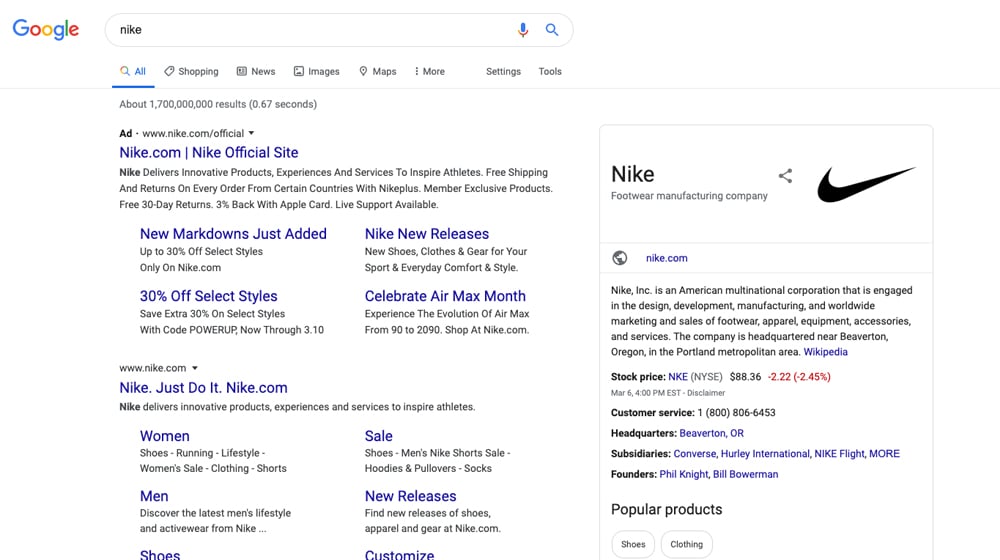
Something like "shoes" is going to be difficult, but not quite as difficult as "Nike" is. You see results like shoes.com, Zappos.com's shoes section, DSW shoe store's site, Famous Footwear's site, and a handful of other websites for brands that sell shoes. You could, potentially, build up enough of a reputation that your site can rank up there among them.
Something like "yellow running shoes" is an easier query still. You still get some big names in there, like a few Amazon search results, an Adidas search result, and Zappos, but you also get sites like RunnerClick, RoadRunnerSports, and RunRepeat on the first page. In fact, at least as far as I can see right now, RunRepeat out-ranks Amazon for that query.
If you happen to produce some high-quality content tailored to searches about yellow running shoes, you can potentially be among the top results for that search relatively quickly.
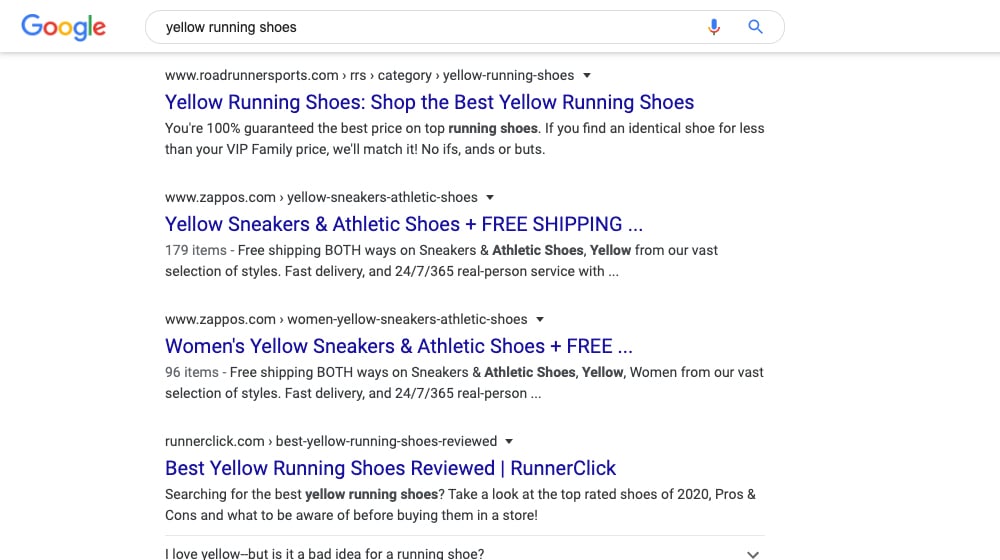
The thing is, there's a sliding scale at work here. Higher competition keywords tend to have a higher search volume. Meanwhile, the easier a keyword is to rank for, the more likely it is that the keyword has low search volume. In other words, it's easier to rank among the top 10 or even number 1, but it doesn't get you as much value for doing so.
Think of it like auditioning for, say, the role of Hamlet in a theater production. It might be really easy to win the role as part of your local theater company that performs in the public park once a month. You'll get an audience of a few dozen people, probably. On the other hand, if you audition for the role of a Broadway production, you could be in front of hundreds of thousands of people, but you'll have some difficult competition to get the role.
Sudden Relevance
One factor that can throw all of this careful analysis askew is sudden relevance. I have a good example for you: Coronavirus. A year ago, nobody would have any idea what a "coronavirus" was, even though it's a common type of virus. It's only trending in the news with high search volume because of its epidemic nature.
One of my customers is currently ranking in the top 1-3 spots for some coronavirus-related searches because they have content that is relevant to people who are concerned about it. We produced that content in the middle of last year, before the current virus fears, and it ranked well but not that well. Now, though, more people are searching for more relevant queries, so this customer's content shot up the ranks.
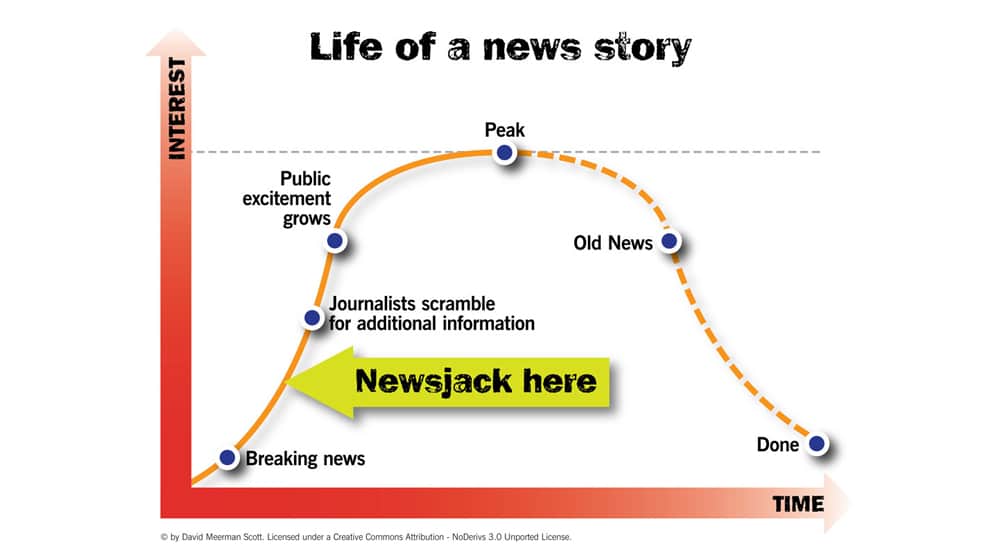
This is why a lot of marketers try to do something called "newsjacking." Newsjacking is hijacking news topics with your own content. Whenever something trends for more than a few hours or a few days, you can produce content for it and publish it. As long as Google picks up the content you produced – and it's high quality, and there's not a ton of other competition – you can rank for those keywords, however temporarily.
Newsjacking is a tricky strategy. On the one hand, it works pretty well to get content in the spotlight. On the other hand, it's a short-lived spotlight. Once the trend passes, you might stop ranking that well, and at the very least, the search volume you relied on drops way down.
The main goal with newsjacking is to be among the first to do it so that other people who are also trying to do it pick up your content and link to you. You rack up backlinks that way, and those links help your site regardless of whether or not the specific content sticks around as high-ranking for a long time.
Critical Mass
One thing that should come as no surprise is that sites take a long time to build up value. Facebook didn't start life as a mega-conglomerate with global influence and billions of users. No, they started as a small, exclusive-to-college social network Mark Zuckerberg created so he could meet girls.
It takes time to build up to any large amount of website value. As you keep running a blog, you keep writing more and more content, which keeps accumulating value. Old posts that don't seem like they're useful to anyone can see a burst of sudden relevance, and gain more value as time goes on.
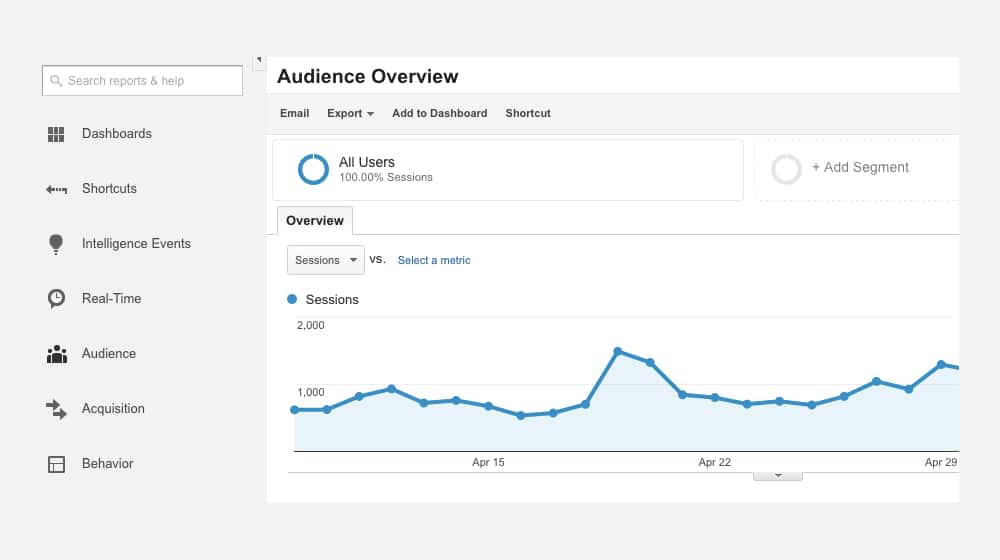
Think of it as a snowball effect, or more appropriately, an avalanche. Snowflakes, individually, don't amount to much. A few hundred of them won't do anything but melt. A few thousand of them, same deal, but it'll take longer. A few million of them, and you start getting snow cover that's visible. A few billion of them, and now you have a deep pile of snow on top of that mountain. A few more, and it triggers the avalanche that makes people take notice.
Every blog post you publish is a new chance. A chance for what?
- A chance for that new piece of content to go viral and rank well.
- A chance for other websites to link to your new piece of content, giving value to your whole site.
- A chance for people to click through and read other pieces of older content, and potentially link to them.
The more content you have, the more chances you have at all times. The more content you have, the more it benefits all of the rest of your content.
A Look at Data
So how long, specifically, does it take for a site to rank among the top ten (or the first page) of Google search results? I don't have the resources to compile enough data to give you a meaningful answer, but thankfully, I don't have to. Other people have. Let's take a look at an Ahrefs study from a couple years ago, which analyzed their index of petabytes (one petabyte is a million gigabytes) of data.
Top ranking pages are old. In fact, the higher a page ranks, the more likely that page is to be older. "Viral" content is great for social media shares and for a sudden influx of backlinks, but viral surges taper off, they aren't sustained.
How old, specifically? According to Ahrefs data, the average age is 2-3 years old. Content in position 1 averaged nearly 950 days old, while content in position 10 was "only" 650 days old.
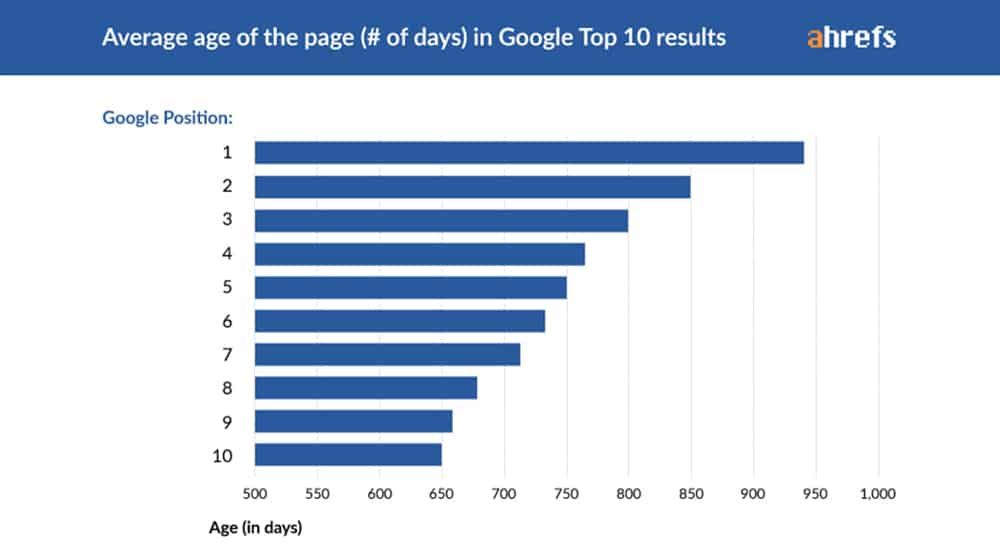
Only 22% of pages ranking in the top 10 of Google's search results were under a year old. So that right there is a good indication that, barring exceptional circumstances, it's already likely that you won't rank in the top 10 for at least a year.
As a side note, there's an interesting fact you can discover by thinking about this data backwards. There's a kind of "cap" on how old a piece of content can be and still rank well, and that's 2011. Content published before 2011 was rarely any good, and that's part of why Google made the huge change to their algorithm we call Panda.
Likewise, there's an entropy factor involved. As content gets older, its relevance can fade. Evergreen content doesn't fade nearly so quickly, and it's easier to update to keep pace with modern changes, but older abandoned content is ripe for targeting. If you can find high-ranking evergreen content that is old and out of date, you can produce your own better, updated version of that content, and have a decent chance of out-ranking it.
Only 5.7% of pages reach the top 10 for their primary keywords within one year. That's, again, another nice bit of data from Ahrefs. They chose 2 million pages from their index randomly, as long as those pages were first seen a year prior. Just under six percent of pages managed to reach the top 10 in under a year. Another 20% were in the top 100 search results but not the top 10, though it's often hard to say if that's even valuable at all.
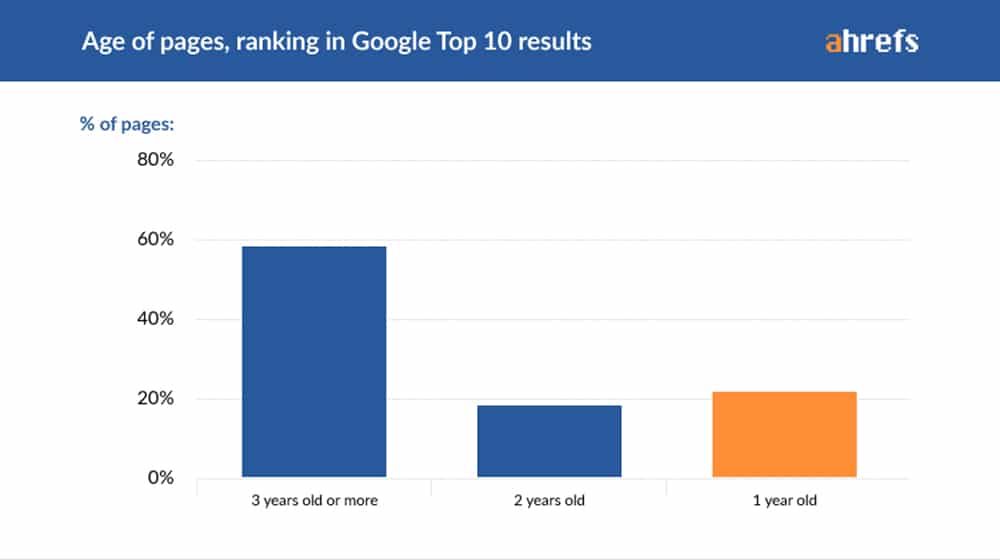
More importantly, three-quarters of all pages didn't make it into the top 100 in their first year.
As you might expect, those numbers adjust based on the Domain Rank of the site as a whole. Higher DR pages had a higher chance – almost double – of being in the top 10 in under a year. Lower DR pages had roughly half the average chance, around 3%.
It pays to spend time building up your site. Doing everything you can to boost your overall domain authority helps all of your pages rank better. Your first few blog posts might never rank in the top 100 search results, but over time, the average ranking of everything on your site will start going up.
It's much, much harder to rank for high volume keywords. The higher the volume, the harder it is. This is common knowledge and is part of why keyword research is so important.
The Ahrefs data throws it into start relief. For high volume keywords – those with over 50K searches per month – only 0.3% of pages under a year old were able to reach the top 10. Only 2.5% were able to reach the top 100. High volume keywords have astonishing amounts of pre-existing high-quality competition.
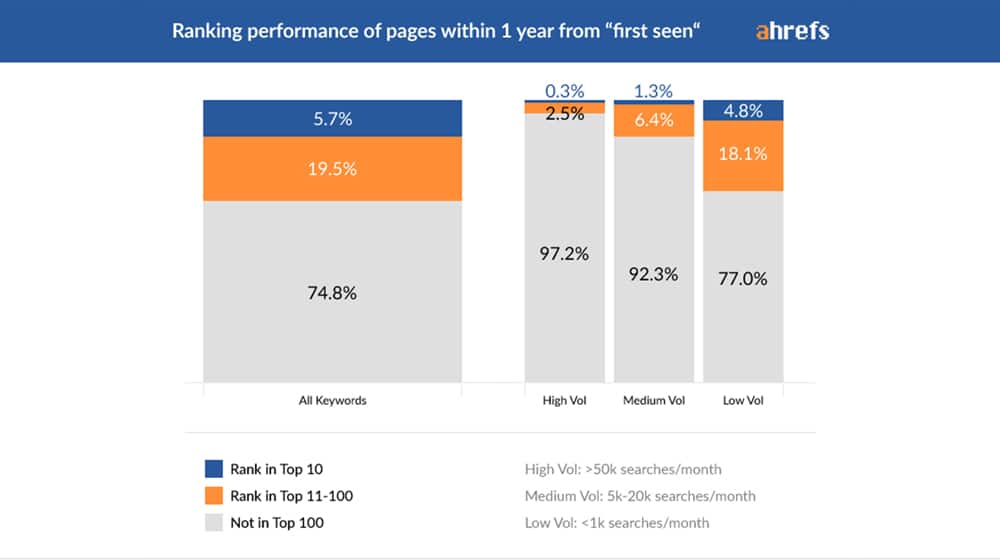
At the end of the day, what it boils down to is recognizing that it takes a long time to build up the momentum and backlink profile necessary to rank and rank well. It's at best a year of constant effort to rank highly for low-volume keywords, and to rank well for high volume keywords is the work of half a decade.
The best advice I can give you is this: don't give up. It's discouraging to know that your efforts won't get you to the top spot very quickly, but there are two things you should know. The first is that ranking highly does not equate to profit. Plenty of high ranking content doesn't turn a profit, and way more lower-ranking content is very profitable. It's all about targeting.
Tenacity is key. Sticking with blogging and keeping up with it on an ongoing basis is the only true way to succeed. Any shortcut you find is liable to work for a short time at best before it stops working entirely. You need to keep at it if you want to achieve your goals.






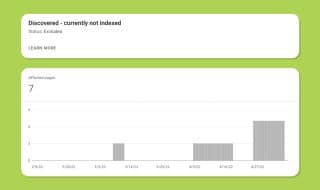



September 11, 2020
This is encouraging James. It does feel frustrating a bit, I'm used to quick results with most other forms of digital advertising.
September 12, 2020
Hang in there! It can take months or even years to gain traction. Just make sure you're writing about things that your potential customers are actually searching for, and doing research to see everybody else that ranks for that topic. When you're first starting out, I think it's a good idea to avoid topics that are overly competitive as they will be very difficult to rank for. If you write 100 posts and all 100 are on hyper-competitive topics that have been covered repeatedly by some of the biggest names, then don't be surprised if you aren't on the first page of the search results. Start with the low-hanging fruit 🙂
September 27, 2020
So if it's been 3 months and my blog post is still not getting traffic, it doesn't mean that something is wrong with it?
September 28, 2020
Hi Tricia!
Good question. No, not at all. We've seen some posts be somewhat underwhelming for up to 2 years and then suddenly pop off. It certainly takes time. There's a bit of a snowball effect as well - as your posts pick up organic shares, links, comments, and engagement, they'll start to perform better over time. If you have a history of posting great articles, new articles will start ranking more quickly in the future as well.
Starting a brand new blog is always more difficult, simply because you have to be so patient while you're waiting for them to start attracting traffic. Search engines don't just hand out authority to everyone, it takes hard work and time to prove that your site has words that are worthy of being read and are helpful to people. It takes a lot of data for them to determine that, and the smaller your site, the longer it will take, which is perfectly normal.
Some people give up and don't have the patience, and others are rewarded in a really big way if they stick with it.
Keep it up!
December 16, 2020
Hey James, since you mentioned that it will take time before a blog ranks, do you think it's best to just invest in SEM and paid Social instead of blogs? I know it's a different thing but for those who want faster results, would you suggest it?
December 18, 2020
Hi Jonathan!
Blogging is a game of patience and a very rewarding one at that.
I always describe it like this:
With ads, you're renting clicks. With content, you're investing in content that delivers a lifetime stream of clicks.
If you're running a project that requires quick results, and especially if your margins are very high and you can afford to pay more for ads, then ads are a great way to go.
Blogging is practically tantamount to SEO these days, so it's important not to forget about the other benefits of blogging if you're considering SEM.
If you're curious, you can read more here:
My advice is to do a bit of both, perhaps with a heavier focus on paid ads at first.
Blog posts are a bit like planting apple seeds in the ground. You won't get an apple tree right away, but forget about it for a year or so and check back, and you might be surprised what it's grown into.
Hope this helps in some capacity 🙂
December 21, 2021
We're nearing the end of our first year since we launched our blog so I'm hoping our posts get there soon. There's always room for improvement but I think we did pretty well this year. Thanks for this encouraging post, James.
December 22, 2021
Thanks Aimee! It can take 1-2 years for a new blog to start taking off. Feel free to reach out at any time if you'd like to chat about blogging, happy to take a look at what you have so far.
January 03, 2023
I needed that kind of inspiration for a long-time. My content was doing well in Google and Bing as a beginner until the 21st OCT. I also read your blog about why your blog is only ranking for Bing. My problem is the same. Google introduced their Spam Update on 21st Oct and a Google bot took down my website. The next thing I did was update my content, converting do-follow backlinks to no-follow backlinks which absolutely look like spam. I did everything to get out of the spam list. Everything was a waste of time because Its January and my blog is still not getting traffic from Google. Even I gave proper credit to every single image. Now I can't hold it anymore because it's been 1.3 years. If there's something you can help with. It would be surely a huge help.
January 05, 2023
Hi Awais!
Please drop me a line via email, I'm happy to take a look at what's going on and point you in the right direction.
It sounds like the issue isn't necessarily related to your outbound links.
I recommend following my blog audit guide to review your content quality; it's very thorough and it may help you identify issues with your content:
May 27, 2024
I must be doing something all wrong here because all my pages are "indexed and ranking" within a short while of 12 hours.
What am I doing wrong here, because SEO takes time yeah
May 29, 2024
Hey Ste! Thanks for chiming in.
If your site is more established and you have a history of producing great content, it makes sense that your content is indexed quickly. Large sites like Forbes and HuffPo have their content indexed in less than half an hour. Small sites can go months without having their new pages indexed.
Every site is different and everyone has their own idea about what "quality content" is... 🙂 it doesn't sound like you're doing anything wrong at all!
June 18, 2024
Seems I have a problem I couldn't locate. New posts are indexed but not ranking
June 27, 2024
Hey Cole!
What do tools like SEMRush or Ahrefs report? What do your impressions look like in Search Console, and how new are the posts?
With "new" posts, your KPI in the early months might be total keywords ranking, or search impressions. If your keywords are steadily climbing as well as your search impressions, that's a good sign. Give it some time and keep improving your site in the meantime. It can take a while for new content to climb the ladder from page 4, 3, 2, and eventually page 1 of Google.
In my opinion, you only really have a problem if it's been months and there's zero growth in your keyword rankings and impressions. It's best to spend your time improving and growing your site.